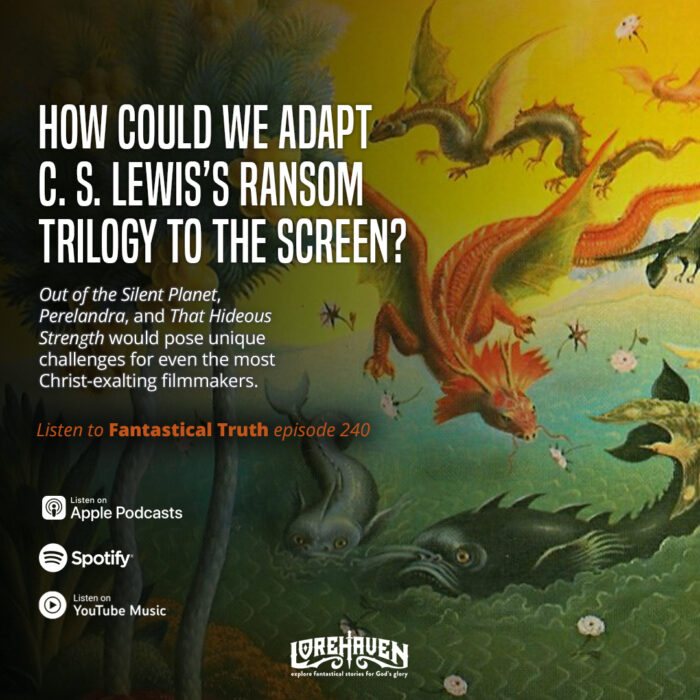‘Amish Vampires In Space’ Takes The Topic Seriously
I am going to stress what one can find others saying in their reviews of this novel on various forums: that this is not some campy or cheesy book. I remember actually being disappointed when I heard from author Kerry Nietz here on Speculative Faith that it was not camp, but serious. It would make such a delicious bit of camp, after all.
I also must admit that the subject being done in a realistic way was hard to imagine at the time that I first heard of this book, though I took author Kerry Nietz’s word for it, and that of others, that he had done just that.
I bought the book after I saw a lot of good reviews and praises for it, and started to read it. I must say that it was an excellent read. The way that Nietz made the story believable, and even scientific to an extent, was truly impressive. This is a science fiction work that straddles the line between the hard and soft ends of that genre.
To describe the premise briefly, there is a planet called Alabaster in the far future, where Amish settlers from earth relocated. One family there had the responsibility of ensuring that the tests were done (in secret, this is technology after all) to see if planet’s aging red son ever threatened to go nova. If so, they must call for help to evacuate the Amishers. It was a risk terra-forming a planet in such an old solar system (my guess, why they moved there to such an eventual problem world was never spelled out), and so someone had to be ready the day the planet’s main star went nova. That responsibility, handed down over hundreds of years, fell to Jebediah Miller at the end of the star system’s life.
One problem for Jeb, as he is called, is that his actions saving his people have lead to him being shunned for violating his people’s rules, called the “Ordnung”. All of this has lead Jeb and his pregnant wife, along with the rest of the Amishers, to the ship of Captain Seal Drake and his crew, wherein the actions of a less-than-scrupulous crewmember lead to an outbreak of a plague that could cause their doom. Jeb, Seal, and Seal’s most trusted crewmembers in Darly and Singer must prevent an outbreak on the ship that could spread across the galaxy and literally destroy all life if unchecked.
Whew! High stakes, huh? Well, despite that, the situation is quite logical and scientific — at least if you assume certain less than realistic as of right now advances in medicine and science. It’s like David Weber in that if the science is right, the scenarios work. Unlike Star Trek and other works, however, the science actually has some validity to it.
The book has gotten a bad rap for having had the non-Amish Christian view be the one that “wins” the day, but that is really undeserved. Yes, Nietz’s view of Christianity is the one that works, but in this situation, it arguably had to be the view that worked, as total pacifism and abhorrence of technology would be suicidal to yourself and others. There are also issues of works versus faith when it comes to salvation at play, and they are dealt with in a concise and respectful manner.
In fact, there is no place where the Amish view was at all denigrated. The Amish characters were never made to look bad, and in fact, the author seemed to go to great pains to portray them sympathetically, even when their ideas were not workable or Biblical. The characters who were sympathetic to the Amish were good, and those that were bigoted against the Amish were portrayed negatively. Even when the Amish break some rules, it is out of the desire to protect others and not themselves. In other words, they stick to their guns as far as they can, are self-sacrificial, and so forth. They are the epitome of being treated fairly.
In fact, Samuel, the Amish character who is the most resistant to change; Jeb, who has doubts; and Singer, whose Christian faith is like the author’s and mine; are all realistically portrayed, and their interactions just feel authentic. While Singer is portrayed as the most theologically correct, all are treated with the utmost respect.
I wish the ending had been more epic, and not as quick, but again, this made sense. This was a researched science fiction tale, not a fantasy epic, so it acted like one. When the ending came, it was a bit anti-climactic in a way, but it was a way that made sense with the science and feel of the story. Even this one possible problem worked to the story’s advantage.
Some of the plot threads are left unresolved. How will the Amishers handle resettling on their new world? What will Jeb and Sarah eventually choose about their way of life? Will Seal and Singer’s possible relationship upgrade stick, or won’t it. Will Seal find Christ, or won’t he? Also, what about the shadowy group that started the banned research leading to so much horror?
We can draw our own conclusions, which is fun, but I would encourage Nietz to do follow-up books in this speculative future universe, as he has enough unanswered questions to justify it.
This was a real page-turner that encouraged me to think of how I view those I disagree with, taught me of the Amish, and had a terrific and actually realistic premise. I highly recommend this book.






































The book is better than people think, but it is hampered a little by the need to make the colonists Amish. I think it could have worked better if they had been Amish-like, something like Gordon Dickson’s Friendlies.